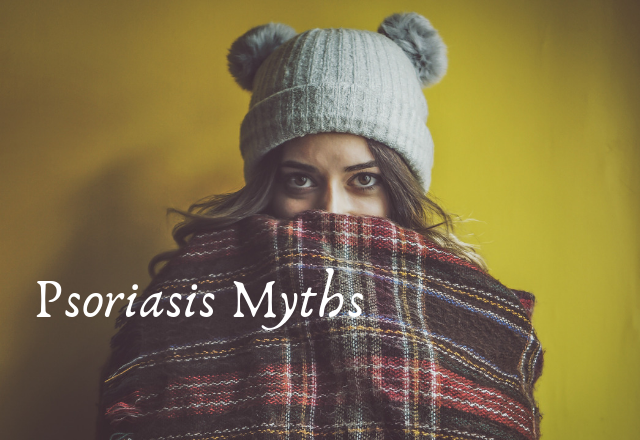Psoriasis is one of the most widely misunderstood skin conditions. According to WebMD, psoriasis is a chronic skin condition caused by an overactive immune system. When you have psoriasis, you often notice raised, red, scaly patches appear on the skin which can be itchy and dry. These patches most commonly appear on the elbows, knees, and scalp, but can show up anywhere. Psoriasis has unfortunately gained its fair share of misconceptions, so let’s discuss.
Myth #1: Psoriasis is contagious. It’s not the flu! You cannot get psoriasis through skin contact and the lesions are not infectious. While the exact causes of psoriasis are unknown, doctors say it’s likely a combination of genetics and triggers.
Myth # 2: Only adults get psoriasis. While psoriasis usually develops between the ages of 15 and 30, anyone of any age can develop psoriasis.

Myth #3: Psoriasis just affects the skin. According to the National Psoriasis Foundation, about 30 percent of people with psoriasis also develop psoriatic arthritis, the inflammatory disease that causes joint pain, swelling, and stiffness. People with psoriasis are also more likely to struggle with depression and anxiety.

Myth #4: Psoriasis is a result of poor hygiene. Psoriasis is not caused, and symptoms are not worsened by poor hygiene. People who develop the disease have a genetic tendency to develop it.
Myth #5: Psoriasis can’t be treated. While there is no cure for psoriasis, there are treatments to help manage symptoms. Treatments that are available today do not work for everyone but may provide some relief in addition to lifestyle changes.
Research studies for potential new psoriasis treatment options are currently underway at Stamford Therapeutics Consortium. Those that qualify to participate in these important clinical studies may receive study-related care and medication at no cost, have access to possible new treatment options and receive compensation for time and travel. If you or someone you love has psoriasis, explore your options and consider participating in a research study. Click HERE to learn more.
